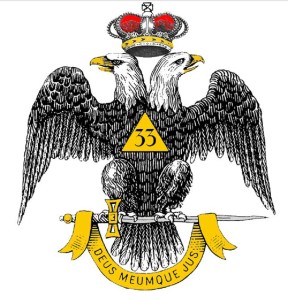By S. Brent Morris, 33°, Grand Cross
Director of Membership Development, Supreme Council, 33°, S.J., U.S.A.
1733 16th St., Washington, D.C. 20009–3103
Freemasonry is the world’s oldest and largest fraternity. It evolved in the British Isles during the 17th century and emerged as a formal organization in 1717 when the Premier Grand Lodge was formed in London. At that time, there were only two levels of membership or Degrees, teaching simple character-building lessons based upon the symbolism of stonemasons’ tools. By 1730, the Third Degree was added in England, teaching further lessons of morality based on allegories surrounding King Solomon’s Temple. As the Fraternity spread into Europe, and especially France, additional Degrees were added onto the basic foundation, each expanding on the earlier symbolism and offering further moral instruction.
By the 1760s, literally hundreds of Degrees, each typically a one-act play with the Candidate in a central role, had been created and were competing for Masons’ time and energy. Some Degrees “grew up together” and provided a cohesive progression of symbolism with a central administration. Such systems of Degrees came to be knows as Rites. For example, in the United States, the Royal Arch and Cryptic Degrees plus the Knights Templar Orders are known as the York Rite.
Stephen Morin of Bordeaux, France, emigrated to Jamaica in 1761 with authority to propagate the 25-Degree “Order of the Royal Secret,” which contained its own Royal Arch, Cryptic, Templar, and other traditions. This system was spread throughout the United States, from New Orleans, Louisiana, to Albany, New York, by Deputies appointed by Morin. In 1801 in Charleston, South Carolina, the Order of the Royal Secret was transformed into the 33-Degree Ancient and Accepted Scottish Rite of Freemasonry.
The Scottish Rite has become today the largest and most widely practiced Masonic Rite in the world. Its Degrees teach a series of moral lessons culminating in the 32°, Master of the Royal Secret. The 33° is sparingly conferred on its members in recognition of their service to humanity or to Freemasonry. The Rite continues the tradition of Masons around the world in improving themselves and their communities. It is a tradition that brings pride to its members, and one we invite you to consider joining.


